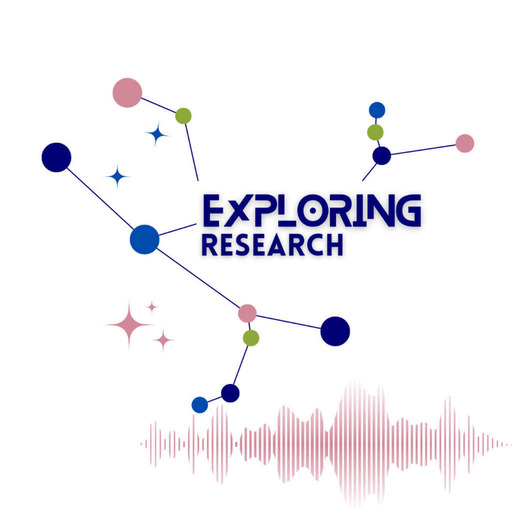[Eng] In this episode you will listen to Cameron Raynes, an Australian writer who stutters, a member of (name of the Australian stuttering association) and Stamily. He tells us about the Power Threat Meaning Framework, edited by the British Psychological Society. Cameron explains why this framework is relevant to the situation of people who stutter and advocates for some further research about it.
[Fr] dans cet episode vous entendrez Cameron Raynes, écrivain australien et adulte qui bégaie, membre de l’association australienne du bégaiement, et de Stamily. Il nous parle du « Power Threat Meaning Framework” propose par l’association britannique des psychologues. Il explique comment ce cadre de pensée est pertinent pour comprendre ce que vivent les personnes qui bégaient et lance un appel pour que des recherches en bégaiement soient menées sur ce thème.
References and links:
PTMF https://www.bps.org.uk/member-networks/division-clinical-psychology/power-threat-meaning-framework
Stamma
https://stamma.org/
Stamily Network
https://www.stamily.org/blog
Association Parole Bégaiement
https://begaiement.org
Association Bégaiement Communication
https://abcbegaiement.com/

Exploring Research
Explorations de la Recherche Scientifique pour la pratique clinique/Exploring Research for Clinical Practice
Christine TOURNIER
Ce podcast vous permet de découvrir les travaux de recherche et les publications utiles pour nourrir votre pratique clinique d'orthophoniste ou de thérapeute. In this podcast, you will find useful information about Research and publications to help you in your clinical practice as a Speech and Language Therapist. Générique/Credits: Musique/Music: Symetrio Voix/Voices: Joeri Van Ormondt, Felicia Pluim, Michelle Swift
Episode 47 [Fr]: conversation avec Veronique Ehlers sur la prise en soin du bégaiement et des troubles de santé mentale
[Fr] Dans cet épisode enregistré dans les studios G4F à Angoulême, vous entendrez une conversation avec Véronique Ehlers, adulte qui bégaie, membre du CA et déléguée Association Parole Bégaiement de la Charente. Nous parlons ensemble de son parcours de thérapie en orthophonie. Elle évoque le sujet de la coexistence d’enjeux de santé mentale (dépression et anxiété sociale) et comment la thérapie du bégaiement combinée à ses autres suivis lui a permis de reprendre des activités sociales. Elle explique aussi comment elle a évolué dans sa façon de voir son bégaiement et comment le blog « Goodbye Bégaiement » de Laurent Lagarde a joué un rôle dans ce processus.
[Eng] In this episode, you will listen to a conversation with Véronique Ehlers, an adult who stutters, board member and delegate of the French Stuttering association Association Parole Bégaiement. We talk about her speech therapy journey. She discusses the coexistence of mental health issues (depression and social anxiety) and how stuttering therapy, combined with her other treatments, has enabled her to resume social activities. She also explains how her view of her stuttering has evolved and how Laurent Lagarde's blog ‘Goodbye Bégaiement’ played a role in this process.
Association Parole Bégaiement:
http://www.begaiement.org
Blog Goodbye Bégaiement:
https://goodbye-begaiement.blogspot.com/
https://goodbye-begaiement.blogspot.com/2022/09/25-choses-que-jaurais-voulu-savoir-sur.html
Episode 46 [Eng]: Angelica Bernabé, on defining the "stuttering severity"
[Eng] In this episode, you will listen to Angelica Bernabé-Roman, an SLT and psychologist who stutters from Peru. She is the director of the Specialized Centre for Stuttering (Centro Especializado en Tartamudez, in Spanish). She went to the USA to do a master's with Dr. Scott Yaruss at Michigan State University. She is now a PhD student at Florida State University, working in the Research laboratory of Christopher Constantino. She presents her work on the definition of “stuttering severity”. She asked 300 participants, English, Spanish, and Portuguese speakers, SLTs, and people who stutter their definition of stuttering severity. She presents the interesting findings of this work.
[Fr] Dans cet épisode, vous entendrez Angelica Bernabé-Roman, orthophoniste et psychologue péruvienne qui bégaie. Elle est directrice du Centre spécialisé dans le bégaiement (Centro Especializado en Tartamudez, en espagnol). Elle s'est rendue aux États-Unis pour faire un master avec le Dr Scott Yaruss à l'université d'État du Michigan. Elle est aujourd'hui doctorante à l'université d'État de Floride, où elle travaille dans le laboratoire de recherche de Christopher Constantino. Elle présente ses travaux sur la définition de la « sévérité du bégaiement ». Elle a demandé à 300 participants, anglophones, hispanophones et lusophones, orthophonistes et personnes qui bégaient, leur définition de la sévérité du bégaiement. Elle présente les conclusions intéressantes de ces travaux.
References:
Roman, A. B. (2024). Defining the Severity of Stuttering. Michigan State University.
www.specializedcenterforstuttering.com
https://www.instagram.com/angelica.stuttering/
Episode 45 [Fr]: Aurélie Pellaton et Franck Médina à propos de l'EBP et de la plateforme Evidence Orthophonie
[Fr] Dans cet épisode vous entendrez Aurélie Pellaton et Franck Médina, orthophonistes. Aurélie Pellaton est aussi formatrice, enseignante et co-autrice d’Evidence Orthophonie. Franck Médina est formateur et auteur, directeur de l’organisme de formation Gnosia et co-auteur d’Evidence Orthophonie.
Ils nous présentent « l’Evidence Based Practice » ou pratique basée sur les preuves puis évoquent comment cette notion a enrichi leurs pratiques. Ils parlent aussi des suites de cet intérêt pour l’EBP avec leur projet de création de plateforme d’aide à la décision orthophonique « Evidence Orthophonie » qu’ils ont élaborée avec François-Xavier Fuhrmann.
[Eng] In this episode, you will listen to Aurélie Pellaton and Franck Médina, speech therapists. Aurélie Pellaton is also a trainer, teacher and co-author of Evidence Orthophonie. Franck Médina is a trainer and author, director of the training organisation Gnosia and co-author of Evidence Orthophonie.
They introduce us to Evidence-Based Practice and discuss how this concept has enriched their practices. They also talk about the consequences of this interest in EBP with their project to create a speech therapy decision support platform, Evidence Orthophonie, which they developed with François-Xavier Fuhrmann.
Références :
MOOC (Massive Online Open Course) Psychologue et orthophoniste, l’EBP au service du patient : https://www.fun-mooc.fr/fr/cours/psychologue-et-orthophoniste-lebp-au-service-du-patient/
Evidence Orthophonie
https://www.happyneuron.com/orthophonie/evidence-happyneuron/
Episode 44 [Eng]: Tom Lovett #2 about the afterwords of his book, concerns about ASRC publications
[Eng] In this episode, you will listen to Tom Lovett, webdesigner and programmer, author of the book “Words Unspoken”. In this Episode, recorded at the WSCO conference in Austin, he presents the content of the afterword of his book. In this chapter, he raises his concerns about some articles produced by the Australian Stuttering Research Centre.
[Fr] Dans cet épisode, vous entendrez Tom Lovett, concepteur web et programmeur, auteur du livre « Words Unspoken ». Dans cet épisode, enregistré lors du congrès WSCO à Austin, il présente le contenu de la postface de son livre. Dans ce chapitre, il fait part de ses préoccupations concernant certaines publications de l'Australian Stuttering Research Centre.
References :
Lovett, T. (2023) Words Unspoken



